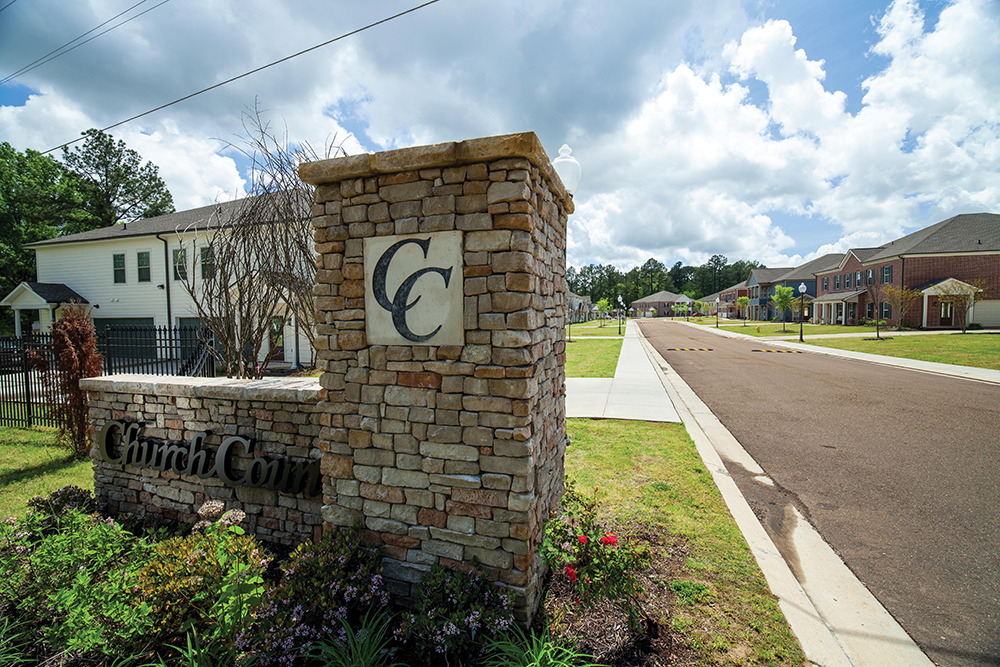Unique banking operation plays large role in the Delta
By Becky Gillette
Southern Bancorp is a different kind of bank. It’s a bank on a mission. That mission is to help people in some of the most economically depressed areas of the country not only have access to financing, but educational opportunities to learn how they can climb up the ladder of economic security in ways such as starting a savings account to be able to use as a down payment to buy their own homes, repairing their credit and developing sound financial habits that will last a lifetime.
The idea for Southern Bancorp was born in the mid-1980s when Bill Clinton was governor of Arkansas and learned about the South Shore Bank, later renamed ShoreBank, located in the economically depressed and predominantly-African American South side of Chicago.
“South Shore was having tremendous impact in this community and it was also being profitable, a for-profit venture in a community that most people had given up on,” said Southern Bancorp CEO Darrin Williams. “Gov. Clinton wondered if this would work in rural areas of Arkansas and invited South Shore Bank people to meet a team in Arkansas, including representatives from the Walton Family Foundation, the Winthrop Rockefeller Foundation and others. Those two foundations, along with other investors, contributed a total of $10 million to start the Southern Development Bank Holding Company.”
The first bank that Southern’s holding company purchased was Elkhorn Bank in Arkadelphia, Ark., followed a couple of years later by First Bank of the Delta in Helena, Ark. Then they purchased Delta Southern Bank, which put them deep into Mississippi in locations like Drew, Ruleville and Clarksdale. Today, the organization has 46 locations across Arkansas and Mississippi.
As president, Clinton envisioned community development banks like Southern Bancorp spread out across the U.S., which is why he spearheaded the passage of legislation in 1994, known as the Riegle Act, which established the Community Development Financial Institution (CDFI) Fund at the U.S. Department of Treasury to regulate and support these mission-driven financial institutions. Today there are nearly 1,000 certified CDFIs across the country that are required to primarily serve a designated financially underserved market.
“Creating economic opportunity in areas that need it most isn’t just a feel-good story, it’s built into our mission,” Williams said. “We are what is called a public benefit corporation, and we are required to balance margin with mission by not just maximizing the return to shareholders, but also by maximizing our social impact.”
The organization has lofty ambitions. Over the next ten years, their goal is to help 10,000 people obtain and sustain affordable housing that builds equity and moves people up the financial mobility ladder. They plan to support and retain 100,000 jobs in the region, and empower one million people to save and accumulate assets.
A prime example of their work is the Church Court Apartments in Holly Springs, a tax credit program Williams said has worked out very well to provide not just affordable housing, but potential ownership.
Developer Stewart Rutledge said he decided to fill a need for high-quality, but affordable housing. Rutledge said normally if you build really high quality housing, you have to charge high rent. But the tax credit program bridges the gap to allow affordable rents.
“We aren’t just renting to one person, but to an entire community,” Rutledge said. “A major component of what we do is the lease-to-own property. After we own for a certain period of time, that resident will have an exclusive first right to purchase this home. It gives a path to home ownership that is not available anywhere else in the U.S.”
“I love it here,” said Patricia Jacome, a resident of Church Court. “By us moving here, we cut our rent in half and we stopped struggling.”
Another type of project helped retain jobs across the river in Helena-West Helena, located in the most impoverished county in Arkansas. When the owner of the Doughboy Pools died, there was interest from the foreign markets including China and Canada to dismantle and move the plant, which would have left 137 people unemployed. The manager of the plant got in touch with the Southern Bancorp leadership and organized a buyout where employees could buy the company and keep those jobs in Helena.
“No one else would have financed that,” Williams said. “Ten plus years later, the company is doing extremely well, and has added employees. It’s just one of countless projects we’re involved with that put the needs of people and the community on the same level as the pursuit of profits. That’s what Southern Bancorp is all about.”

